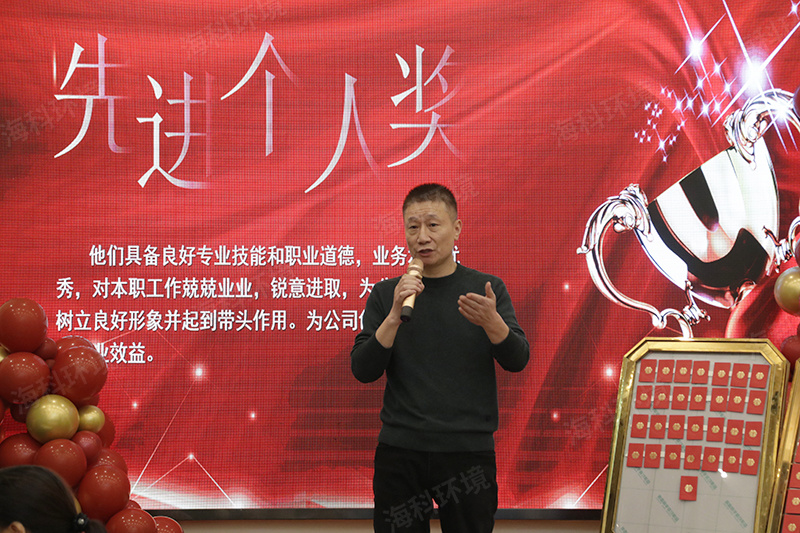ENERGY SAVING AND ENVIRONMENTAL PROTECTION EQUIPMENT AND ENGINEERING GENERAL CONTRACTING
Understanding Industrial Bag Filters: Essential Components for Effective Air Filtration
2025-06-24
---
Industrial bag filters are crucial components in air filtration systems, particularly within industrial environments where air quality is paramount. These filters are designed to capture dust, particles, and other contaminants from the air, ensuring cleaner, safer workspaces and compliance with environmental regulations. Understanding the functionality, types, and maintenance of industrial bag
---
Industrial bag filters are crucial components in air filtration systems, particularly within industrial environments where air quality is paramount. These filters are designed to capture dust, particles, and other contaminants from the air, ensuring cleaner, safer workspaces and compliance with environmental regulations. Understanding the functionality, types, and maintenance of industrial bag filters can significantly enhance their efficiency and longevity.
At their core, industrial bag filters operate on the principle of filtration, where air passes through a porous fabric material, capturing particulate matter. The effectiveness of these filters largely depends on the bag material, which can vary from woven to non-woven fabrics. Common materials include polyester, polypropylene, and fiberglass, each selected based on the specific application and the type of contaminants expected.
There are several types of industrial bag filters, including pulse jet filters, shaker filters, and reverse air filters. Pulse jet filters are particularly popular due to their ability to maintain airflow while cleaning the bags. They utilize a burst of compressed air to dislodge accumulated dust, allowing for continuous operation without significant downtime. Shaker filters rely on mechanical shaking to remove dust, making them suitable for less demanding applications. Reverse air filters use a reverse airflow to clean the bags, which also enables prolonged filter life.
The filtration efficiency of industrial bag filters is often measured by their dust holding capacity and the pressure drop across the filter. A higher dust holding capacity allows for longer intervals between filter replacement, while a lower pressure drop indicates less energy consumption during operation. It’s essential for industries to select filters that strike a balance between these factors to optimize both performance and cost-effectiveness.
Maintenance is another critical aspect of ensuring the effectiveness of industrial bag filters. Regular inspection and cleaning can significantly extend the life of the filters. Visual inspections for any signs of wear and tear, along with scheduled cleaning cycles, help maintain optimal airflow and efficiency. Additionally, replacing filters at recommended intervals, based on the operational conditions and the type of pollutants present, is vital for maintaining air quality and system performance.
In conclusion, industrial bag filters play an indispensable role in air purification in various industrial applications. By understanding their types, functionalities, and maintenance practices, industries can ensure that their air quality management systems operate efficiently and effectively, protecting both personnel and the environment. Proper selection and care of these filtration systems are essential for sustainable operations in today’s stringent regulatory landscape.
Industrial bag filters are crucial components in air filtration systems, particularly within industrial environments where air quality is paramount. These filters are designed to capture dust, particles, and other contaminants from the air, ensuring cleaner, safer workspaces and compliance with environmental regulations. Understanding the functionality, types, and maintenance of industrial bag filters can significantly enhance their efficiency and longevity.
At their core, industrial bag filters operate on the principle of filtration, where air passes through a porous fabric material, capturing particulate matter. The effectiveness of these filters largely depends on the bag material, which can vary from woven to non-woven fabrics. Common materials include polyester, polypropylene, and fiberglass, each selected based on the specific application and the type of contaminants expected.
There are several types of industrial bag filters, including pulse jet filters, shaker filters, and reverse air filters. Pulse jet filters are particularly popular due to their ability to maintain airflow while cleaning the bags. They utilize a burst of compressed air to dislodge accumulated dust, allowing for continuous operation without significant downtime. Shaker filters rely on mechanical shaking to remove dust, making them suitable for less demanding applications. Reverse air filters use a reverse airflow to clean the bags, which also enables prolonged filter life.
The filtration efficiency of industrial bag filters is often measured by their dust holding capacity and the pressure drop across the filter. A higher dust holding capacity allows for longer intervals between filter replacement, while a lower pressure drop indicates less energy consumption during operation. It’s essential for industries to select filters that strike a balance between these factors to optimize both performance and cost-effectiveness.
Maintenance is another critical aspect of ensuring the effectiveness of industrial bag filters. Regular inspection and cleaning can significantly extend the life of the filters. Visual inspections for any signs of wear and tear, along with scheduled cleaning cycles, help maintain optimal airflow and efficiency. Additionally, replacing filters at recommended intervals, based on the operational conditions and the type of pollutants present, is vital for maintaining air quality and system performance.
In conclusion, industrial bag filters play an indispensable role in air purification in various industrial applications. By understanding their types, functionalities, and maintenance practices, industries can ensure that their air quality management systems operate efficiently and effectively, protecting both personnel and the environment. Proper selection and care of these filtration systems are essential for sustainable operations in today’s stringent regulatory landscape.
Industrial bag filter
RELEVANT INFORMATION
The 2023 Annual Meeting of Jiangsu Haike Environmental Technology Engineering Co., Ltd
2024-01-08
The 2023 Annual Meeting of Jiangsu Haike Environmental Technology Engineering Co., Ltd


 English
English Русский
Русский بالعربية
بالعربية

